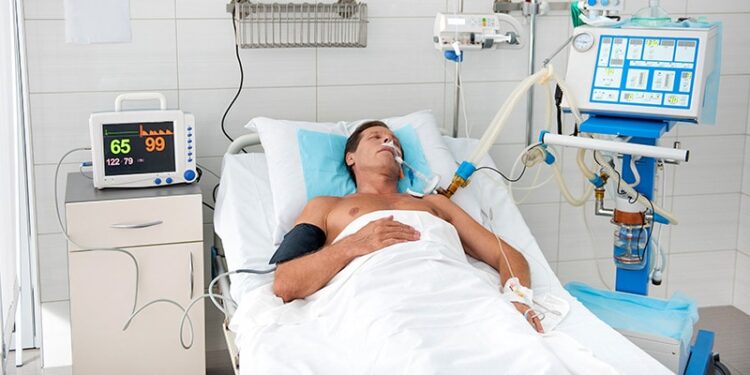TOPLINE:
Administration of dexmedetomidine in patients undergoing cardiac surgery reduced the incidence of postoperative delirium by 38% but was associated with an increased risk for hypotension.
METHODOLOGY:
- Researchers conducted a systematic review and meta-analysis of 18 randomized controlled trials involving 3904 patients undergoing any type of cardiac surgery.
- They compared the use of dexmedetomidine with the use of propofol or normal saline as a control in patients in the intensive care unit, with administration either intraoperatively or postoperatively.
- The primary outcome was the incidence of postoperative delirium, assessed using the Confusion Assessment Method scale or other scales, in an intention-to-treat analysis.
- The secondary outcomes included the duration of delirium, use of mechanical ventilation, length of hospital stay, and rates of hypotension, atrial fibrillation, and acute kidney injury.
TAKEAWAY:
- The administration of dexmedetomidine was associated with a 38% reduction in the incidence of postoperative delirium compared with control (odds ratio [OR], 0.62; P < .001) in an analysis of 18 studies, showing declines compared with both normal saline (P = .02) and propofol (P < .001), particularly when assessed using the Confusion Assessment Method scale (P < .001; event rate, 12.4% in the group receiving dexmedetomidine and 16.82% in the control group).
- The use of dexmedetomidine significantly reduced the incidence of delirium in adult patients younger than 70 years (OR, 0.55; P < .001) but not in those older than 70 years. Trial sequential analysis confirmed dexmedetomidine’s superiority over the control, suggesting further trials are not needed.
- Dexmedetomidine also reduced the duration of postoperative delirium compared with the control (mean difference, −0.53; P = .01) in a pooled analysis of six trials.
- Hospital stays were shortened in the dexmedetomidine group vs the control group (mean difference, −1.07; P = .02), and an increased risk for hypotension was observed with the use of dexmedetomidine (OR, 1.49; P < .001).
IN PRACTICE:
“This study found that postoperative or intraoperative of dexmedetomidine administration has a beneficial effect to reduce the incidence and length of postoperative delirium (POD),” the researchers reported. “This effect remains robust across various sensitivity and subgroup analyses based on the timing of administration, the age of patients, type of control group, or the scale used to assess the POD. However, it should be noted that dexmedetomidine use was associated with an increased risk of hypotension.”
SOURCE:
The study was led by Ahmed Abdelaziz, MD, of the Medical Research Group of Egypt and the Negida Academy in Arlington, Massachusetts. It was published online on May 27, 2025, in the Journal of Cardiothoracic and Vascular Anesthesia.
LIMITATIONS:
The sedation dosages and durations varied due to the lack of a standardized anesthesia protocol. The effect of dexmedetomidine across different surgery types was not examined in the analysis, potentially affecting outcome reliability. The absence of data on extubation and intubation duration limited comprehensive evaluation.
DISCLOSURES:
One author reported receiving institutional grants from Philips and Amgen. Another author reported receiving an industry grant from Edwards Lifesciences.
This article was created using several editorial tools, including AI, as part of the process. Human editors reviewed this content before publication.
Source link : https://www.medscape.com/viewarticle/dexmedetomidine-use-linked-lower-incidence-delirium-after-2025a1000eyn?src=rss
Author :
Publish date : 2025-06-03 11:43:00
Copyright for syndicated content belongs to the linked Source.














